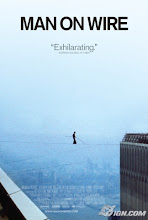Jean-Pierre Jeunet's movie, Amélie, not only exemplifies the difference between Hollywood cinema and European cinema, but also can be seen as a feminist film. Amélie is a film that could be viewed as an attempt to appeal to a broad, multinational audience, as it includes many aspects that appeal to many different cultures: comedy, character development, and romance. This may be due to the French, and European, film industry's attempt to be known as something more than just the producer of art films. The long-standing dominance of Hollywood in the global market has been the bane of the European’s existence, so to speak. Amélie incorporates the traditional characteristics of French filmmaking, as well. The movie included scenes of a sexual nature, which are more common in French films than in Hollywood films. It fits well into the category of a Nouvelle Vague film, with its use of actual locations rather than sets and the main plot revolving around the developing relationship between a woman and a man. Amélie also can be viewed as a feminist film, as the entire film revolves around Amélie and her adventures. She is shown as being a strong, independent woman and capable of even the most insurmountable tasks. Her adventures include reuniting a man with his collection of goods from when he was a child, giving a recluse joy, helping a disabled man become happier, and find joy in her own life. In all of these escapades, the change she brings about a positive change within the people. She does not rely on any male figure for any sort of help and this propagates the feminist ideology that women and men are equal and that women can operate without men. The film, while enjoyable, breaks preconceived notions about European films and the idea of a seemingly pro-feminist movie, as many men would deem most feminist movies as dry.
-David Zabriskie













No comments:
Post a Comment